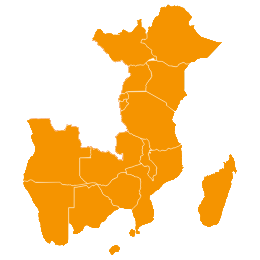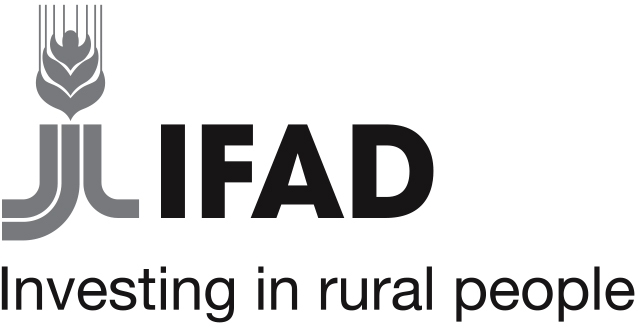E-finance vouchers support growth for Kenyan smallholders
"I am now able to pay for tractor services to do land preparation. We managed to put up a store using off-cuts and are in the process of putting up a better poultry house."
Joan Kirui, maize farmer in Nakuru County, KenyaBACKGROUND
Food security is an ongoing issue in Kenya, with around 10 million people affected by chronic food insecurity. Erratic rainfall and drought can devastate crop yields.
The KCEP e-voucher programme helps boost food productivity, supporting farmers as they move from subsistence farming to agribusiness enterprise.
WHAT’S INVOLVED
A digital platform for agribusiness finance
Through the e-voucher platform, farmers can open bank accounts and budget their resources across different e-wallets. The vouchers can be used to buy pre-prepared input packages of seeds, equipment and consumables from selected suppliers.
Expert guidance for smallholders
Input packages are designed and validated by experts from the Kenyan Agricultural and Livestock Research Organization, and are focused on marketable crops. The programme also includes skills training and crop insurance options, which promote sustainable production.
EXPLORE THIS SOLUTION
The KCEP e-voucher project can offer:
- A proven framework for supporting the transition from subsistence farming to agribusiness
- Experience of implementing financial insurance to protect against drought-related crop failure

Countries involved
Kenya
Project partners
Government of Kenya, Equity Bank (Kenya) Limited with its Foundation Group, Kenya Agricultural and Livestock Research Organization, Agricultural Marketing Development Trust and Eastern Africa Grain Council
Project dates
2013 - 2021
Share this solution
Bookmark this solution
BookmarkShow Full Solution
Summary
Food security remains a major challenge in Kenya, with some 10 million people suffering from chronic food insecurity and poor nutrition. The e-voucher system, introduced by the Kenya Cereal Enhancement Programme (KCEP), provides a potential solution.
The electronic platform was introduced to improve smallholder farmers’ agricultural productivity and develop agriculture as a business enterprise. After registering on a web portal, farmers open bank accounts and are issued with debit (ATM) cards that allow them to purchase 'input packages' including products like seeds, hermetic bags and tarps. At the same time, financial literacy training and a weather-based crop insurance scheme are offered.
Challenge
Before the project, Kenyan smallholders in the target areas were farming purely on a subsistence basis. The overall aim of the KCEP project was to help them transition to a market-oriented and commercial agricultural system. Several challenges were addressed, including:
- A history of difficulties with late planting and erratic rainfall that affected some of the crops;
- The ongoing drought which has created catastrophic damage in Kenya; and
- A need to link farmers with financial institutions and output markets, and provide them with risk mitigation against climate variability.
Solution
The e-voucher scheme is a component of KCEP, initiated by the European Union (EU) and launched in April 2014. It was designed to scale up gains and lessons learned from the government’s previous programme, National Accelerated Agricultural Inputs Access Programme (NAAIAP), which was also based on a voucher scheme.
The e-voucher scheme was set up to support and train around 40,000 smallholders in eight counties, the majority of them living below the poverty line. To enrol, potential beneficiaries register on a dedicated web portal and open a bank account with the Equity Bank Limited (EBL), a leading bank in Kenya in terms of financial inclusion. The farmers are issued customized debit (ATM) cards containing different 'e-wallets' which they can use to purchase farm products or inputs from selected agro dealers. There is an e-wallet for each of the different products offered, so that farmers can distribute their funds across different expenses.
The product packages consist of certified seed, basal and top-dressing fertilizers, as well as post-harvest items such as hermetic bags and tarpaulins. Based on technical packages developed by Kenya Agricultural and Livestock Research Organization (KALRO), the product packages have been validated by key stakeholders and designed for crops that are adapted to local agro-economic conditions. Moreover, only crops that have viable market outlets are considered.
Farmers using e-vouchers are referred to participating agro-dealers depending on their stocking capacity. This creates a fair distribution system with a good farmer-to-agro-dealer ratio, ensuring inclusivity and coverage. The electronic platform ensures that payments made to the agro-dealers are both immediate and traceable. The agro-dealer's trade is not restricted to programme farmers, and the farmers are not obliged to buy from programme agro-dealers for their other farming activities.
In line with the programme’s approach, eligible farmers are subsidized for three consecutive farming seasons with a contribution of 10 per cent, 40 per cent, and 70 per cent of the package cost, for the first, second, and third season, respectively. At the same time, they are offered financial literacy training sessions, focusing on good agricultural practices, post-harvest management training, linkages to markets, group management and gender mainstreaming.
Results
The institutional and technological innovations introduced since early 2016 under KCEP have already produced results in terms of efficiency, transparency and reducing linkages and corruption. Within the first two years:
- Governments, both national and in the targeted counties, have seen the added value and potential of the e-voucher in terms of agricultural modernization, acknowledging the programme as one of the national flagship initiatives.
- A total of 82,723 smallholder farmers (48 per cent women, 6 per cent young people and 34 per cent men) have accessed e-voucher products.
- The value of the total transacted e-voucher inputs amounts to KES1.5 billion (equivalent to US$13.7 million) since the implementation of the solution
- The agro-dealers have reported a doubling or tripling of their sales volume, with some even achieving a KES1 million revenue for the first time in one cropping season. This success has prompted some agro-dealers to expand their business or diversify into other value chain operations. Many more show greater interest in participating in the programme after seeing the benefits and opportunities.
- 8,338 smallholder farmers out of a total of 23,622 have been trained in financial literacy.
- A total of 187 conservation agriculture service providers have offered their services to farmers, while the programme has recruited and vetted a total of 860 private extension service providers across all the implementing counties.
Lessons learned and potential for replication
- Mobilization and awareness-raising – an early start on this process is recommended, since getting the final list of farmers and agro-dealers is a laborious process. This should be coupled with ensuring accuracy of data captured, especially farmers’ names and identity card numbers. These data are crucial parameters used during screening by financial institutions.
- Accurate and timely communication – due to the seasonality of agriculture, there is a need for efficient planning, coordination and execution of all activities leading to farmers gaining access to inputs through the e-voucher system.
- Input supply monitoring – this process should be conducted regularly with agro-dealers to ensure farmers can access the recommended inputs (type, quantities, pricing) and to monitor compliance with recommended good agricultural practices.
- Timely delivery of inputs – this is important for early planting. Late planting leads to yield loss and susceptibility to pests and diseases, such as grain borer and head smut.
Next steps
There is emerging evidence of programme sustainability for the e-voucher scheme, as shown by the adoption of improved inputs autonomously by the beneficiaries and strengthened linkages between the beneficiaries and bulk buyers. The Ministry of Agriculture, Livestock and Fisheries has taken this innovation and is scaling up the e-voucher scheme through the State Department of Crop Development and Agricultural Research with expanded value-chain scope that will allow subsidized inputs to be issued to farmers in 37 selected counties.
Solution Video
Solution Document Downloads
Solution Additional Resources
KCEP - CRAL Official WebsiteLast update: 27/01/2021


